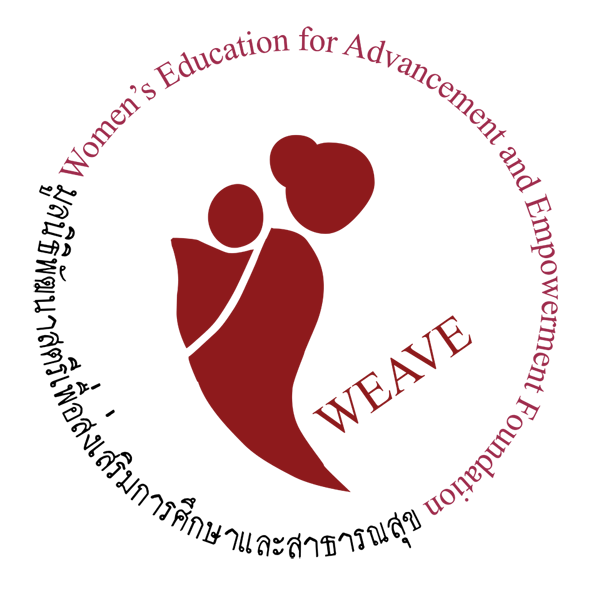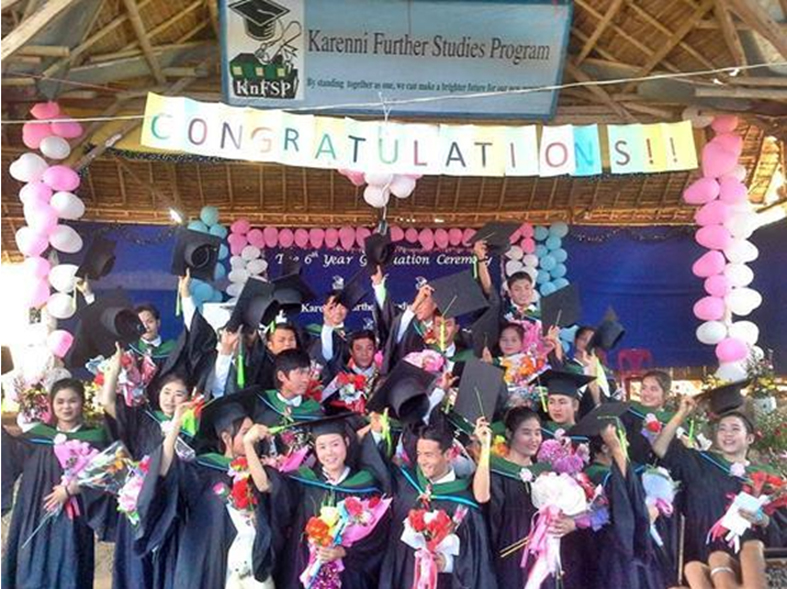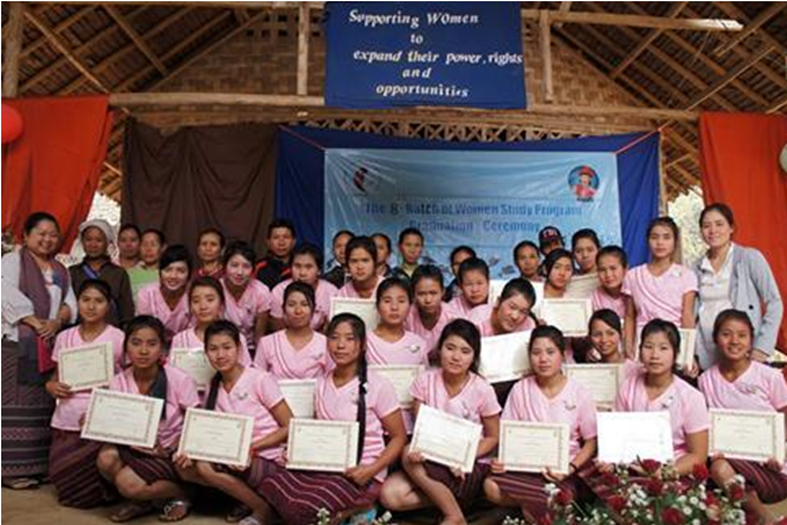One of the biggest challenges of our time is the ability to invest and provide education access to girls
and young women.This is particulary true in conflict stricken communities where refugee children often
do not have access to quality education. Yet, it is necessary because until we give these girls equal
access to a good quality education, our world will continue to suffer from child and maternal mortality,
various diseases and other by-products of poverty.
Last March 22 and 25, 2014 more than 40 Karenni students from WE VE’s supported community
schooling program in the 2 Karenni refugee camps on the Thai-Burma border has successfully
graduated. Twenty three (23) girls and young women from Ban Mae Nai Soi refugee camp have
completed a 10 months intensive course in the Women’s Study Program (WSP). Meanwhile another
twenty two (22) students of which 50% girls from the Karenni Further Studies Program (KnFSP), our
local partner in Ban Mae Surin who is implementing the 2 years post-high school education to Karenni
youth celebrated their 6th year graduation
Photo credit: Goragot Khetmas, WEAVE MHS
Reality tells us that education is connected to the age where women marry and have children. Many
reports also show how education gives girls and young women the freedom to make decisions to
improve their lives. For example at least 15% of the previous students in WSP (in 2010-2011 school
year) told us that they got married as early as 15 years old. Education is a potent tool to empower these
girls, to decide over life choices through the provision of safe spaces, where they can develop their
confidence, stand and speak up for their rights, as well as demand the opportunity to further improve
themselves. ccording to one of the WSP graduates, “I started learning at WSP because in my village
there was no opportunity to study and I wanted to know about my rights and to help my community.”
Participating in the WSP means these disadvantaged and vulnerable refugee girls and young women
have developed confidence in their abilities and take more of an active role within their community.
Moreover, they have now possessed relevant right-based knowledge and have found their voice to
reason and debate with their peers and community leaders on women’s issues that is important to
them and their community
Education also helps girls and young women resist social limits on what they can or cannot do. It can
assist them in making informed decisions on how many children they want, and how frequently they
will get pregnant. By learning about the health risks associated with years of consecutive childbirth they
can choose to delay getting pregnant. Moreover, on more practical terms, improving functional literacy
and numeracy among girls and young women offers enormous economic benefits. Until the number of
girls and boys attending school is equal, there remain the presence of more non-literate women than
men, and with only very few women able to secure, well-paying jobs. Only when a young woman is
seen and recognized as a potential wage-earner for her family, is the likelihood for her to make her
own/personal choices and resisting cultural and family pressure to have children.
Finally, education is also closely interconnected to health. A UN report showed that at least 12 million
children — a quarter of the world’s population of malnourished children — could be saved from
malnutrition if all mothers in poor countries were given a secondary education. Malnutrition is not only
about food; it starts with poverty and can be avoided if women received relevant education needed for
them to earn a decent living.
WSP was founded in 2006 and KnFSP in 2008 by WEAVE and its local partners in response to the lack
of access to post secondary education for many girls and young women in the Karenni refugee camps in
Ban Mai Nai Soi and Ban Mae Surin. With the main goal of providing opportunity to these young
refugee have safe access to non-formal girl’s education, more than 300 ethnic minority girls and young
women and young people are now engaged in various refugee community structures and
organizations, creating and supporting meaningful changes.
WEAVE is proud to see the transformative power brought by its education program despite the
challenging context and WEAVE will continue to create opportunities for these young women and their
communities through education, economic, social and political empowerment.
To support, please contact us at [email protected]. For volunteer and internship
inquiries, contact [email protected]


